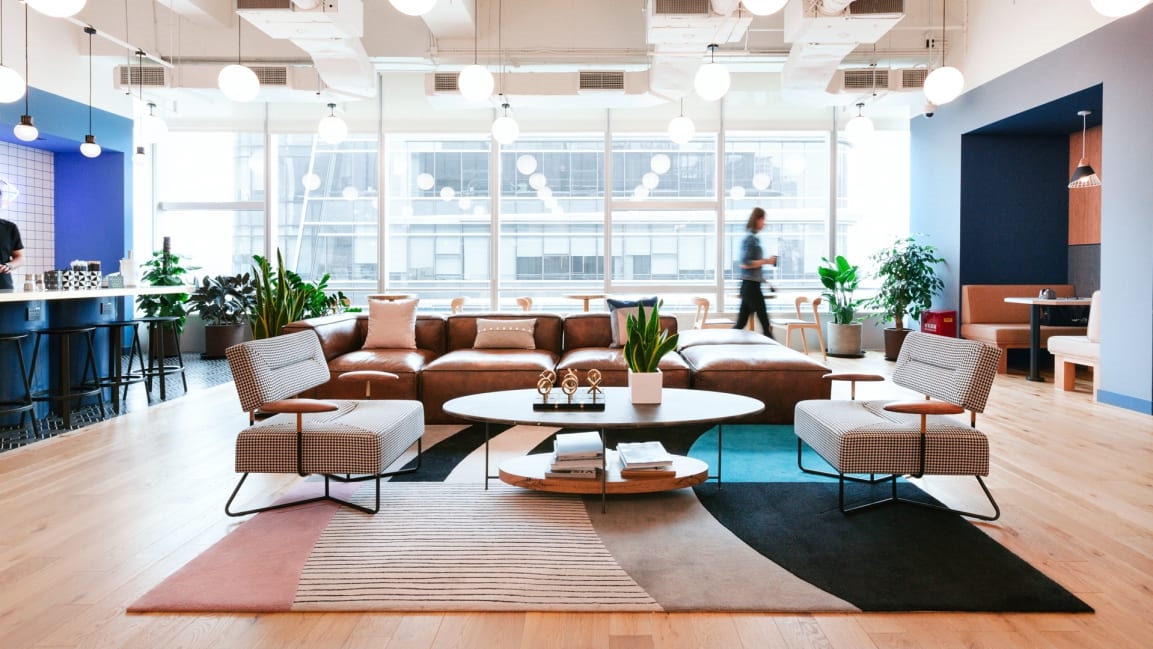The We Company wants to cash in on “the WeWork effect,” too
Today, WeWork’s parent company, The We Company, announced a new real estate acquisition and asset management platform called ARK. Canadian real estate investor Ivanhoé Cambridge, a subsidiary of institutional investor Caisse de dépôt et placement du Québec, has agreed to invest $1 billion into the $2.9-billion fund that will be used to place ownership stakes in buildings.
The announcement is notable because, up until now, WeWork has taken an asset-light approach to its business, stocking up on leases but not properties. That’s changing as the company becomes more competitive with the landlords it once relied on as partners.
A piece of the WeWork narrative is that its co-working spaces create value for the buildings in which they’re housed. Fast Company dubbed this the “WeWork Effect” back in 2015. We noticed that properties with WeWorks in them were growing their value quickly. For instance, WeWork’s Taylor Street location in San Francisco was worth $18 million in 2012. A year later, WeWork moved in. By 2015, the property was worth an estimated $27 million.
A more recent example is a historic building in downtown Miami where WeWork has been a tenant for three years. The building, 117 Northeast First Avenue, was bought for $25.5 million in 2015 and was expected to sell for $65.5 million in March. WeWork has another 12 years on the lease.
If this is true, it’s no surprise that the company would want to capitalize on the value it’s bringing to landlords.
Already, WeWork has ownership stakes in several buildings through its real estate arm, WeWork Property Advisors. Earlier this year, the The Wall Street Journal revealed that CEO Adam Neumann was personally buying up properties and leasing them back to WeWork, creating a potential conflict of interest that made investors nervous. Neumann has said that he will sell those properties to ARK. The properties owned by WeWork Property Advisors will also move under ARK.
Part of the reason Neumann says he bought those buildings is to prove WeWork’s value. “If I don’t put my own money on it, why would other real estate owners have the courage to buy it?” he told Bloomberg, which first reported the news. Part of that, as the article points out, is convincing landlords that it’s worth paying 90% of the cost of converting their space into a WeWork.
And that may be getting more difficult. Landlords have gotten wise to WeWork’s game, and in some cases are developing their own tech, building out their own flexible spaces, and partnering with less complicated co-working startups to provide the kind of amenities that tenants want. As WeWork becomes more of a competitor to landlords, it may find itself with less access to certain real estate or favorable deal terms.
The ultimate platform
The We Company and smart landlords are increasingly aware that real estate is just a platform—a blank slate that needs to be programmed. Forever, landlords would take on tenants based on whoever was willing to pay the most. But priorities have shifted. People wants to live and work in places with all of their favorite things. Buildings are now about personality—does it have a Sweetgreen or a Salad Box? An Equinox or a Crunch? A Starbucks or a Blue Bottle? The value a commercial tenant brings to a space is now as important as the price they’re willing to pay.
Related Companies, the real estate company behind New York’s newest neighborhood Hudson Yards, has some of the most artful executions of this idea. The company is not only thoughtful about how it curates spaces with a mix of retailers and service providers, it has been known to buy companies that fit its vision, like fitness brand Equinox, which owns cult cycling outfit SoulCycle.
The We Company is similarly multitentacled. It now owns a fitness brand of its own (Rise), a residential company (WeLive), an alternative school for designers and engineers (Flatiron), and even a school-school for kids ages 2-11 (WeGrow) in addition to co-working (WeWork). It also sources and designs office space for big companies like Microsoft or Pinterest—clients that can get programmed into its portfolio of buildings, helping to scale that business as well.
WeWork is putting a lot of money into building technology and talent teams that will enable it to scale what it believes to be its most valuable asset: its community. If WeWork becomes a landlord, it has a much bigger opportunity to prove the case that it is good at building places that people want to be and buildings that will sell for a whole lot of money years down the road.
(19)



